PRESS RELEASE: The Federal Communications Commission Proposes Ongoing Funding to Keep Millions of Students Connected
The FCC will vote on a proposal to provide hundreds of millions in ongoing federal subsidies for schools to continue offering home WiFi hotspots, ensuring students stay connected online
[Oakland, CA] – School district officials and digital equity advocates from the #OaklandUndivided coalition praised the Federal Communications Commission’s (FCC) proposal to provide ongoing federal subsidies for schools to keep students online. The FCC recently announced plans to modernize the ~$4B E-Rate program. Since 1996, E-Rate has connected schools and libraries to high-speed internet by discounting these institutions' on-site service costs.This modernization proposal would extend the E-rate discount to also cover costs associated with providing data-enabled devices to check out for home use. The FCC Commissioners will vote on the proposal in their July 18th open meeting.
This pivotal action marks a significant step toward continuing historic expansion in student home connectivity made possible by COVID-era federal programs such as the Emergency Connectivity Fund (ECF) and the Affordable Connectivity Program (ACP), which successfully provided internet access to millions of students, schools, and libraries nationwide, but ended this spring.
“All students deserve home internet connectivity to access a 21st-century education - it’s fundamental to educational equity, now more than ever. The COVID-era connectivity programs dramatically expanded access, and the approval of this sustained funding would ensure schools have the resources to keep our students connected,” stated Susan Beltz, Chief Technology Officer at Oakland Unified School District.
Before the pandemic, only 67% of California K-12 students had reliable access to computing devices at home, with even lower access rates among low-income students. The COVID-19 pandemic highlighted the profound need for reliable home internet access, a necessity that enabled students to access remote learning.
In response, the federal government provided unprecedented funding to enable schools to expand access.
The Emergency Connectivity Fund supported home connectivity through school-loaned laptops and data-enabled hot spots to approximately 4.1 million students in California. Notably, districts with a larger number of low-income and Black and Latino students applied for ECF funding, further emphasizing its impact on the least connected students across the state. With ECF set to sunset on June 30, 2024, school districts - especially those serving high proportions of Black, Latino, or low-income students, such as OUSD - will require ongoing financial assistance to cover the ongoing service costs or be forced to scale back home connectivity resources in the years ahead.
The Affordable Connectivity Program (ACP), a $30/month discount on home internet service, had specific eligibility criteria to foster student connectivity, including universal eligibility for Oakland Unified School District households through the Community Eligibility Program. A citywide enrollment campaign spearheaded by OUSD helped enroll over 27,000 Oakland households. Unfortunately, the ACP also exhausted funding and phased out in May of 2024, increasing internet costs and forcing households to downgrade to lower-quality connections or cancel their plans entirely
Even with the return to in-person learning, home connectivity remains a top priority for equity advocates. “The FCC’s proposal to keep student hotspots activated next school year couldn't have come at a more critical juncture. Thousands of students rely entirely on these hotspots to access their education, and we cannot return to the untenable pre-pandemic connectivity levels,” said Patrick Messac, Director of #OaklandUndivided.
The digital divide remains a stark reality, particularly affecting low-income communities and communities of color. While 91% of California households have internet access, an estimated 3.5 million people remain disconnected. This lack of access disproportionately impacts Black and Latinx families, who are almost twice as likely as their white counterparts to lack broadband access.
Cost remains a significant barrier to internet service. In a 2023 Statewide Digital Equity Survey, nearly two-thirds of respondents without home broadband cite cost as a reason. Strikingly, on average, households spend $83.60 per month on broadband services, making the cost of the internet in California amongst the highest in the nation. These economic disparities underscore the urgent need for continued support through the Wifi Hotspots program.
With the end of such impactful federal programs, the FCC’s proactive measures ensure that we do not lose the progress made. School officials hope the decision will be expedited before the start of the next school year to help keep students connected, thus bridging the digital divide and fostering an environment where all students have the opportunity to succeed.
About #OaklandUndivided
#OaklandUndivided (#OU) is an equity-based, collective impact initiative launched in May 2020 to harness the people's power to solve one of modern society’s most persistent structural inequities - the digital divide. #OaklandUndivided consists of a coalition of our founding partners, including the City of Oakland, Oakland Unified School District, trusted anchor institutions, over 20 community-based organizations, as well as elected and appointed officials and community leaders throughout Oakland. At #OaklandUndivided, we believe in taking a comprehensive approach to digital equity that addresses the structural inequities that undergird the divide. We believe digital equity impacts virtually every sector and intersection of society: Education, Healthcare, Workforce (employment), and Economic Development.
